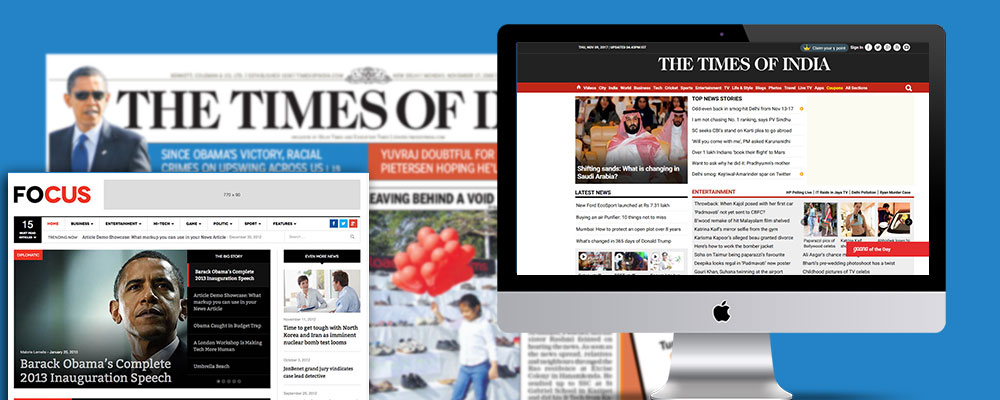How International News Online can Save You Time, Stress, and Money.
Table of ContentsSome Ideas on International News Online You Should KnowSome Ideas on International News Online You Need To KnowUnknown Facts About International News Online10 Easy Facts About International News Online ShownSome Known Incorrect Statements About International News Online
The platform's name adjustment happened in July 2023.) Some social networks sites despite having relatively tiny total audiences stand apart for having high shares of users that routinely go to the website for news. For example, roughly fifty percent of customers on X (53%) obtain news there. On the various other hand, only 15% of Snapchat customers regularly obtain information on the application.
, Sept
When asked whether social media is an excellent or bad thing for freedom in their nation, an average of 57% throughout 19 countries claim that it is an excellent point. In nearly every country, close to fifty percent or more state this, with the belief most usual in Singapore, where roughly three-quarters believe social media is a great point for freedom in their country.
And in the U.S., just around a 3rd think social media is favorable for democracy the smallest share among all 19 nations evaluated. In 8 countries, those who think that the political system in their nation permits them to have an impact on national politics are additionally much more likely to claim that social media is a great thing for freedom.
Those who view the spread of false details online as a major threat to their country are much less likely to say that social media sites is an excellent point for freedom, compared with those that see the spread of false information online as either a small hazard or otherwise a threat in any way.
Our International News Online Diaries
Older adults in 12 countries are less most likely to claim that social media is a great thing for democracy in their country when contrasted to their younger equivalents. In Japan, France, Israel, Hungary, the UK and Australia, the gap in between the youngest and oldest age groups is at least 20 percentage factors and ranges as high as 41 points in Poland, where nearly nine-in-ten (87%) younger grownups say that social media has been an excellent point for democracy in the nation and only 46% of adults over 50 claim the same.
Throughout the six issues tested, couple of often tend to claim they see no modifications as a result of increased connectivity rather seeing things altering both favorably and negatively and frequently both at the same time (International News Online). A mean of 84% say technological connection has made people less complicated to adjust with false info and reports the most amongst the six concerns examined
In most nations, those that assume social media has actually made it easier to manipulate individuals with false information and rumors are also more most likely to believe that social media has actually made individuals extra educated. When it comes to politics, the web and social networks are normally seen as disruptive, with an average of 65% claiming that individuals are currently a lot more split in their political viewpoints.
10 Simple Techniques For International News Online
This feeling of threat is associated with the widespread belief that people today are now easier to control with incorrect information and rumors many thanks to the web and social media. Around fifty percent or more in every country checked shares this view. And in position like the Netherlands, Australia and the UK, around nine-in-ten see people as even more manipulable.
For instance, in South Korea, 90% of those under age 30 state social media makes redirected here individuals less complicated to control, compared with 65% of those 50 and older. (Surprisingly, U.S.-focused research has actually discovered older grownups are most likely to share false information than younger ones.) Individuals with more education are likewise frequently a lot more likely than those with less education to state that social media sites has actually resulted in individuals being easier to adjust.

In 2016, as an example, following the U.S. presidential political election, 64% of U.S. adults assumed completely fabricated information had created a fantastic offer of confusion concerning the standard realities of present occasions. At the time, around a third really felt that they usually came across political information online that was entirely made up and another half said they commonly ran into news that was not completely accurate.
The 20-Second Trick For International News Online
In Sweden, Japan, Greece and the Netherlands, around eight-in-ten or even more share this view, while in Malaysia, a smaller bulk (56%) states the exact same. More youthful adults tend to see social media making people a lot more educated than older adults do. Older adults, for their part, do not necessarily see the internet and social media making people less educated about what's happening in their nation; rather, they're somewhat more probable to explain these systems as having little result on people's info degrees.
